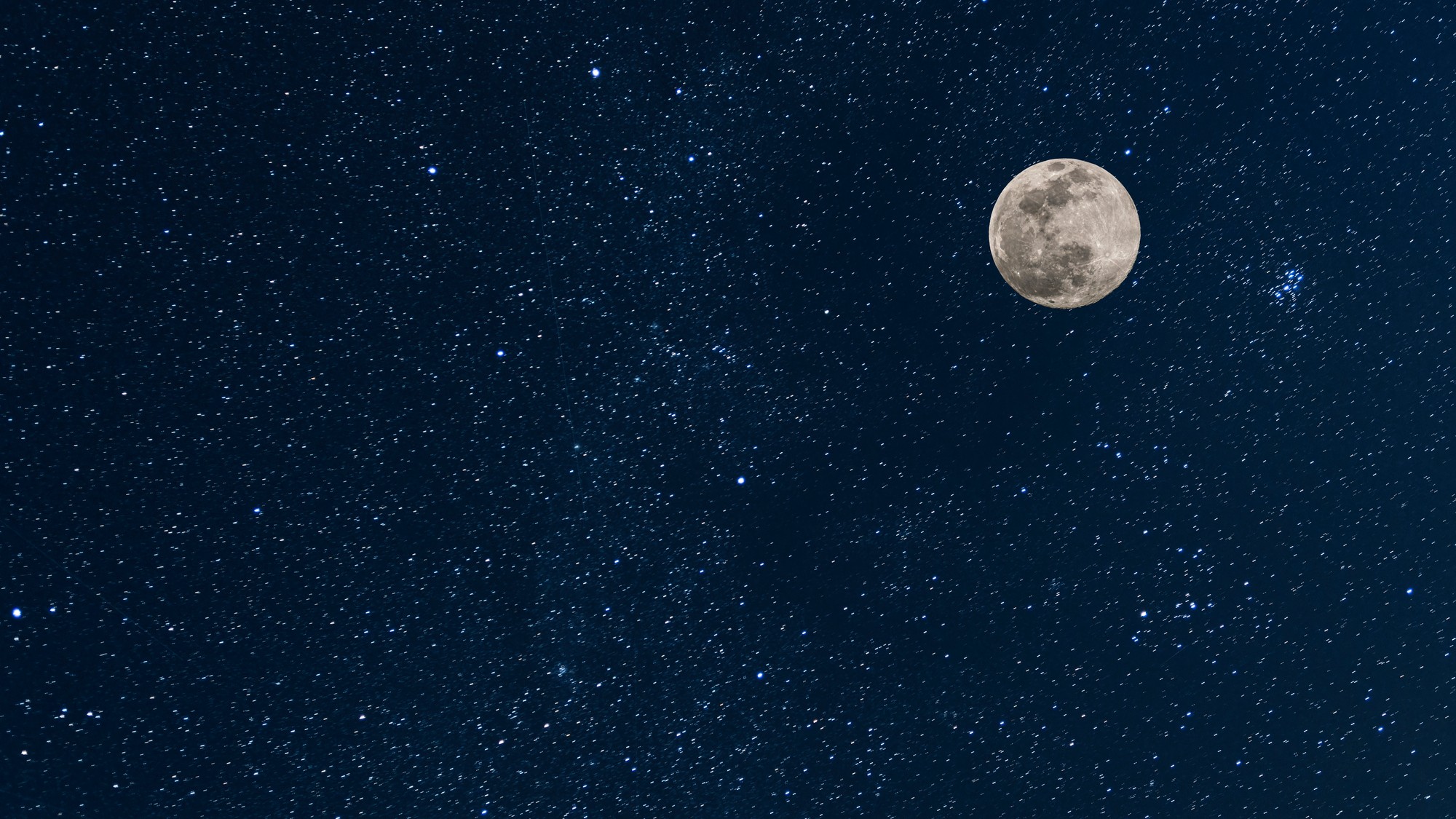Earth may be gaining a temporary moon
A planetary plus-one


A free daily email with the biggest news stories of the day – and the best features from TheWeek.com
You are now subscribed
Your newsletter sign-up was successful
Starting in late September, Earth is going to have a second moon for two brief months, as a small asteroid piece will be incorporated into the planet's orbit before heading back into outer space. Experts often monitor objects flying near Earth for potential threats; but they are also of great interest to scientists, since these space particles could become a valuable resource in the future.
A moon for a moment
Earth's gravity is going to temporarily capture an asteroid named 2024 PT5. The mini-moon will orbit the Earth from September 29 to November 25, according to a study published in the journal Research Notes of the American Astronomical Society. The asteroid is approximately 10 meters or 33 feet wide and was discovered in August through NASA's Asteroid Terrestrial-impact Last Alert System.
Mini-moons are often hard to identify because of their size and speediness. "Every time an object with an orbit so earthlike is discovered, there is a chance that we are just recovering space debris," Raúl de la Fuente Marcos, an astronomer at the Complutense University of Madrid and a co-author of the study, said to The New York Times. However, upon investigation, 2024 PT5 "is a natural object, no doubt about that." In fact, the asteroid may be "possibly a piece of ejecta from an impact on the moon," Paul Chodas, the director of the Center for Near Earth Object Studies at NASA's Jet Propulsion Laboratory, said to the Times. While exciting, the mini-moon will not be visible, as it is too dim to see even with a telescope.
The Week
Escape your echo chamber. Get the facts behind the news, plus analysis from multiple perspectives.

Sign up for The Week's Free Newsletters
From our morning news briefing to a weekly Good News Newsletter, get the best of The Week delivered directly to your inbox.
From our morning news briefing to a weekly Good News Newsletter, get the best of The Week delivered directly to your inbox.
Just a rock in the sky
While the asteroid will be entering Earth's orbit, it is not yet a guarantee that 2024 PT5 will even qualify as a moon. "It certainly won't complete one full revolution in the Earth-moon system this fall, so I'm not sure I would classify it as a mini-moon," said Lance Benner, the principal investigator of the asteroid radar research program at NASA's Jet Propulsion Lab, to the Times. This is also not the first time such an event has occurred. In 2006, an asteroid orbited Earth for nearly a year, and another asteroid orbited for several years, finally leaving in 2020.
Scientists are often monitoring near-earth objects for two major reasons: resources and planetary defense. "Mini-moons like 2024 PT5 are also of great intrigue as they may contain precious metals, which one day might be mined," said Futurism. "It's a fascinating reminder of the kinds of diverse objects that can be found in our planet's orbit." In terms of defense, researchers are always on the lookout for large asteroids capable of colliding with Earth. Even when they are not capable of causing dinosaur-level extinction, "there are millions of smaller, still threatening near-Earth rocks whose whereabouts remain unknown, the sort that could still cause widespread damage and casualties if they impacted a populated area," said the Times. "There's a pretty busy highway around the Earth," Federica Spoto, an asteroid dynamics researcher at the Center for Astrophysics, Harvard & Smithsonian, said to the Times.
A free daily email with the biggest news stories of the day – and the best features from TheWeek.com
Devika Rao has worked as a staff writer at The Week since 2022, covering science, the environment, climate and business. She previously worked as a policy associate for a nonprofit organization advocating for environmental action from a business perspective.
